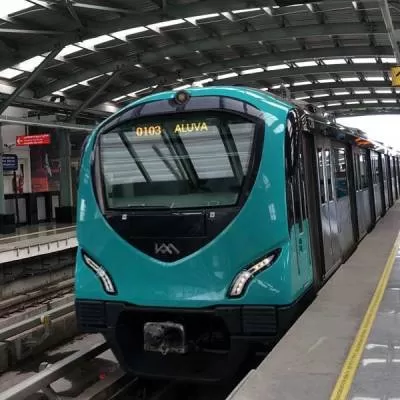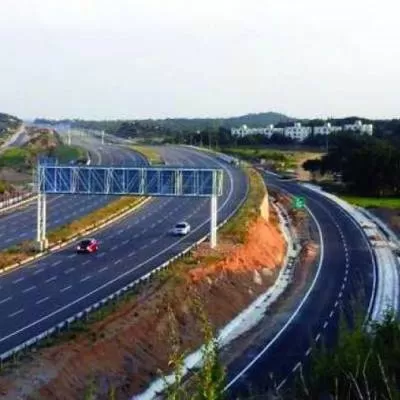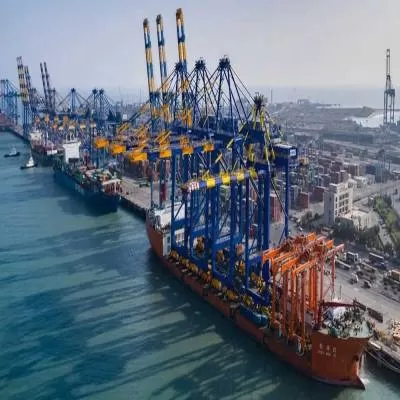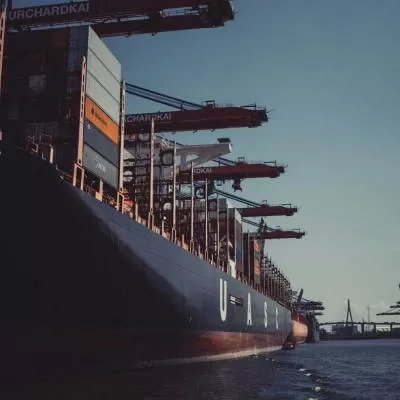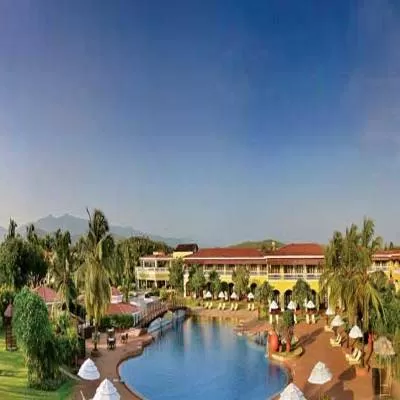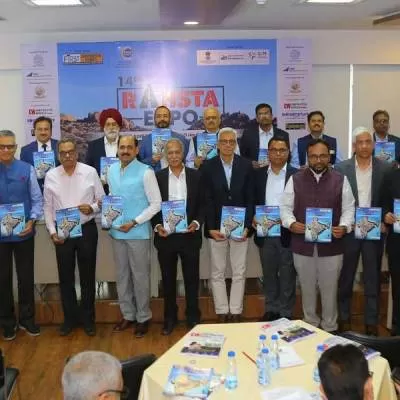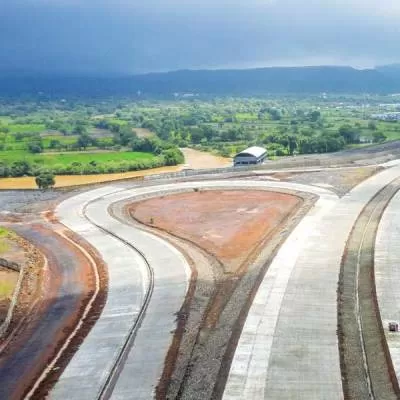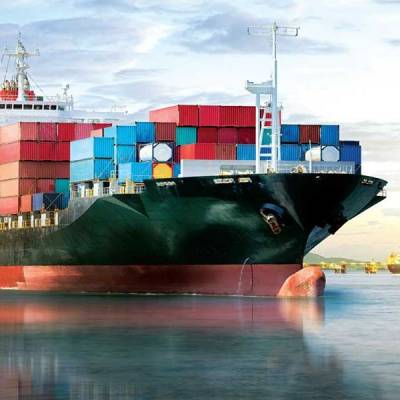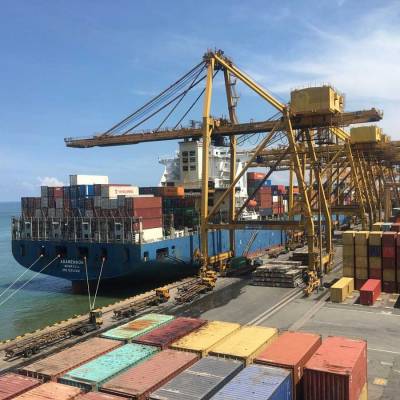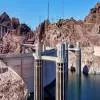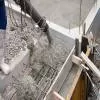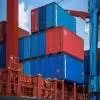- Home
- Infrastructure Transport
- PORTS & SHIPPING
- Of mission & intention
Of mission & intention
The recent outbreak of chlorine at Sewri in Mumbai was the result of some operators using the site for importing empty chlorine cylinders and filling them for re-use, when some residual chlorine leaked out into the atmosphere. The land owned by the Mumbai Port Trust is an industrial area mainly used for storage and delivery of cargo and containers. It has many derelict factories and warehouses and is also home to a huge slum. The port trust's land, of over 1,800 acre, of which only about half is used by the port has leased the rest, around 836 acre, to agencies such as the Food Corporation of India, the Cotton Exchange and other commercial enterprises. Now as the realty prices move north, the port trust land appears as an attractive proposition for fulfilling the city's infrastructure needs.
But without integrated planning this too will be a futile attempt in redressing the city that is bursting at its seams. First it was the MSRDC which locked horns with MMRDA over the trans-harbour link. Now BMC too has sought a share in the profits from MMRDA as it claims that its needs for fulfilling infrastructure requirements has gone up. While even the dust had not settled on basic issues of governance in the state, than the Centre floated a draft notification with relaxation in the Coastal Regulation Zone guidelines. The Centre has agreed to allow private players to take part in the redevelopment if the government makes an investment of 51 per cent while private participation is limited to 49 per cent. An estimated 2,500 buildings and 60 large slum pockets exist in CRZ-II areas (within 500 m of the high-tide line) only from Cuffe Parade to Versova. No new development is allowed there and since most of these areas have already consumed their available FSI, redevelopment is not economically viable. The change of approach will have a major impact on cities along the coast, including Mumbai, where builders have been lobbying to scrap the CRZ regime. The expectation is that modification of the present 500 m restriction will free large tracts of land along the sea for building activity. Abu Dhabi among others like Singapore have capitalised on coastal development by adding greener environments to the city. India too can make the most of its 7,500 km coastline between infrastructure projects like ports, tourism projects and recreation areas for crowded cities.
The British Petroleum's oil spill disaster which has destroyed marine life in the Gulf of Mexico and has caused the Fortune 500 Company to nearly go bankrupt has raised the issue of corporate responsibility towards environment. While we have seen how Union Carbide has gone scot free with an under $ 500 million liability and the nuclear liability bill is still being debated, the true onus of responsibility lies with a company's intention and mission. Pfizer, Toyota and several others have recalled their products from the market in order to pull back defective pieces and preserve the faith that the customers have in their products. On the other hand Apple Inc which has admitted that their new product, I phone 4, has faulty signal recognition software, is not being recalled. A thin line divides the admired company and a large company: the line of trust and faith. Our winners of "India's Most Admired Companies" in this issue's cover story, hopefully, will treasure that the nation holds them in high esteem and will choose to uphold that trust when faced with challenging situations.
- Construction
- Update
- Portal
- Magazine
- India
- August
- World
- 2010
- chlorine
- Sewri
- Mumbai
- Port
- Trust
- cargo
- containers
- warehouses
- Food
- Corporation
- Cotton
- MSRDC
- MMRDA
- BMC
- Centre
- CRZ-II
- investment
- Cuffe Parade
- Versova
- FSI
- Abu Dhabi
- Singapore
- infrastructure
- Gulf
- Mexico
- Union Carbide
- Pfizer
- Toyota
- Apple Inc
- Cargo
The recent outbreak of chlorine at Sewri in Mumbai was the result of some operators using the site for importing empty chlorine cylinders and filling them for re-use, when some residual chlorine leaked out into the atmosphere. The land owned by the Mumbai Port Trust is an industrial area mainly used for storage and delivery of cargo and containers. It has many derelict factories and warehouses and is also home to a huge slum. The port trust's land, of over 1,800 acre, of which only about half is used by the port has leased the rest, around 836 acre, to agencies such as the Food Corporation of India, the Cotton Exchange and other commercial enterprises. Now as the realty prices move north, the port trust land appears as an attractive proposition for fulfilling the city's infrastructure needs. But without integrated planning this too will be a futile attempt in redressing the city that is bursting at its seams. First it was the MSRDC which locked horns with MMRDA over the trans-harbour link. Now BMC too has sought a share in the profits from MMRDA as it claims that its needs for fulfilling infrastructure requirements has gone up. While even the dust had not settled on basic issues of governance in the state, than the Centre floated a draft notification with relaxation in the Coastal Regulation Zone guidelines. The Centre has agreed to allow private players to take part in the redevelopment if the government makes an investment of 51 per cent while private participation is limited to 49 per cent. An estimated 2,500 buildings and 60 large slum pockets exist in CRZ-II areas (within 500 m of the high-tide line) only from Cuffe Parade to Versova. No new development is allowed there and since most of these areas have already consumed their available FSI, redevelopment is not economically viable. The change of approach will have a major impact on cities along the coast, including Mumbai, where builders have been lobbying to scrap the CRZ regime. The expectation is that modification of the present 500 m restriction will free large tracts of land along the sea for building activity. Abu Dhabi among others like Singapore have capitalised on coastal development by adding greener environments to the city. India too can make the most of its 7,500 km coastline between infrastructure projects like ports, tourism projects and recreation areas for crowded cities. The British Petroleum's oil spill disaster which has destroyed marine life in the Gulf of Mexico and has caused the Fortune 500 Company to nearly go bankrupt has raised the issue of corporate responsibility towards environment. While we have seen how Union Carbide has gone scot free with an under $ 500 million liability and the nuclear liability bill is still being debated, the true onus of responsibility lies with a company's intention and mission. Pfizer, Toyota and several others have recalled their products from the market in order to pull back defective pieces and preserve the faith that the customers have in their products. On the other hand Apple Inc which has admitted that their new product, I phone 4, has faulty signal recognition software, is not being recalled. A thin line divides the admired company and a large company: the line of trust and faith. Our winners of India's Most Admired Companies in this issue's cover story, hopefully, will treasure that the nation holds them in high esteem and will choose to uphold that trust when faced with challenging situations.


